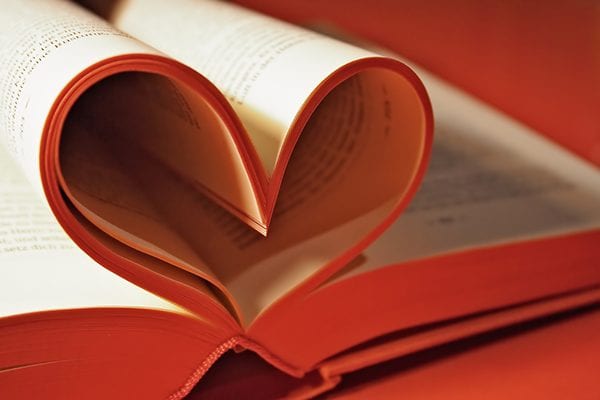Spotting the differences in romance novels
Spotting the differences in romance novels
Spotting the differences in romance novels
-
Hannah
-
Hannah

Do you remember the children’s game ‘spot the difference’, where you compare two pictures and circle the differences? Well, if you played that game with two romance novels, you would entirely deface the pages with red circles (please don’t!).
To me, it is evident that all romance novels are unique. Any yet, those who don’t read and enjoy romance continue to stick upon the genre this label: ‘all romance novels are the same’.
Last month, similarities in romance novels hit the headlines when it emerged that a prolific self-published romance author had plagiarised the work of bestselling author Becky McGraw. In the commentary on the news story, some journalist displayed a lack of understand of the romance genre that angered another author, Jenny Trout, and prompted her to write a piece for the Huffington Post entitled ‘No, All Romance Novels Are Not the Same’.
In the article, Jenny challenges lines from The Washington Post: But a romance novel isn’t exactly ‘ Infinite Jest.’ though some bodice-rippers are dirtier than others, there is a formula – at some point, the wealthy heiress or the lady-in-waiting hooks up with the horse wrangler or the errant knight, and jeans come off or, well, bodices get ripped.
Romance novels are not the same, she argues; they merely follow genre conventions – as does all genre fiction.
Yes, in a romance novel there will always be a character who meets another character and falls in love, but that’s hardly a ‘fill-in the blank’ template. One of the characters can be anyone; a reporter. A cowboy. A vampire. The other could easily be a fairy, or a detective, or a billionaire. And the obstacles to true love are not going to be the same for a sheik and a hotelier as they would be for a werewolf and a DEA agent.
In an article for Bustle, Sadie Trombetta is on the same page. In ‘11 Things All Romance Readers Are Tired of Hearing’ she writes:
Is every science-fiction book the same, or every fantasy book? Like every other genre, romance novels are all different. Some have aspects of historical fiction, others involve the supernatural. Some have happy endings while others end in tears. No two romance books are the same — read a few and you’ll see.
I wholeheartedly agree. Over my life, I have read many, many romance novels, and each has been original in sentiment and story and setting. When I look at my own published works, I see similarities only in the sense that they meet conventions of the romance genre; most prominently, I see differences:
Each book is set in a very different place, from Kenya to Italy to Spain.
Some of my books have other women; some have other men.
I situate the story in different eras: so far, the 1950s, 1970s and 2000s.
My heroines have differing personalities and qualities: some are reserved, some emotional; some are naïve, some more worldly; some are quick to trust, some wary.
Line up my heroes – Leandro, Andrés, Salvador, Paolo and Rafe – and you see very different men. Strong, yes, and attractive; but each has his own backstory that drives him, and a different manner. Rafe, for example, is the ultimate tortured Byronic hero; Salvador knows his own mind and is resolutely proud; Leandro, conversely, is all about freedom and tribalism.
Each book has a unique mood. The Echoes of Love, for example, has a dark, mysterious undercurrent; Indiscretion is warmer, more impassioned.
I explore different cultures in the books. For example, Burning Embers touches on local tribal witchcraft; The Echoes of Love contains some Eastern philosophy; Masquerade brings in the ways of the Romani people of Andalucía.
Themes and contexts differ widely. Masquerade relates to Surrealist art; The Echoes of Love draws upon a Venetian heritage and legends of Italy.
Of course all my novels are different. It is the difference that makes reading any book so much fun. You have a very broad idea of what to expect: man and woman meet and encounter obstacles to love. But beyond the basis, every single detail is brandnew. That is what makes me read a book and write one: the journey of discovery.
The idea that we romance readers would repeatedly read the same, ‘fill the blank’ book is laughable. We’re intelligent, we’re discerning, we love to be challenged and surprised and intrigued. Isn’t it time that the strongest, bestselling genre in the market was given the respect and credibility it deserves?
